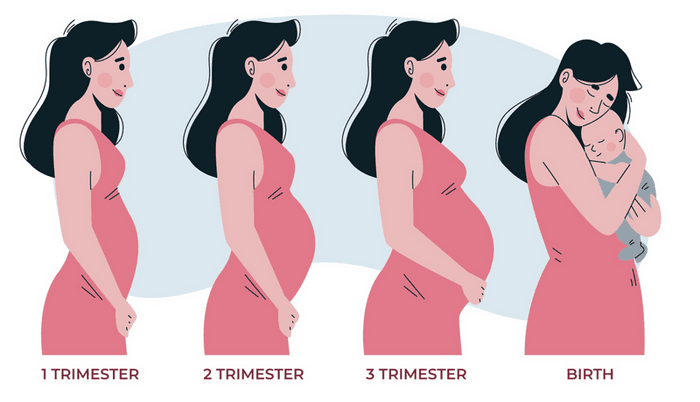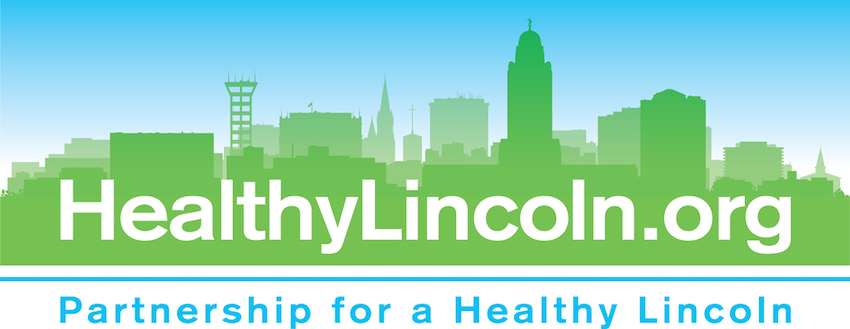Importance of Early Pregnancy Healthcare

Seeing a healthcare provider in the first eight to ten weeks of pregnancy and then at scheduled times throughout your pregnancy means a healthier you and a healthier baby.
For moms, pregnancy (prenatal) care can prevent or minimize complications from pregnancy risks such as hypertension, anemia, infections, depression and gestational diabetes. For babies, proper prenatal care greatly lowers the risk of birth defects and low birth weight which can cause life-long health issues.
Pregnancy Tests
You can buy reliable pregnancy tests from pharmacies and supermarkets. You can also get a free or lost-cost pregnancy test from the following organizations in Lincoln:
- Planned Parenthood – Lincoln Health Center, 5631 S. 48th St. #100, (877) 859-0587.
- Lincoln Pregnancy Center, 111 Piazza Terrace, (402) 483-4247. Not a medical center.
- Lancaster County Medical Society (LCMS), 301 S 70th St. Suite 340, (402) 483-4800. LCMS is not a medical center but will provide funding for pregnancy tests, if you qualify.
- Family Health Services, Inc. - 630 N. Cotner Blvd., Suite 204, (402) 466-1012. Download a brochure about their reproductive care services in English and Spanish. They have in-house providers for pregnancy confirmation and early pregnancy counseling. For prenatal care, they will refer you to a provider.
- Lincoln Lancaster County Health Department, 3131 O St., (402) 441-8065. They also have free pregnancy tests in vending machines at these locations:
- Outside the Health Department at 3131 O St.
- Union Plaza Park, 22nd and O St.
- F St. Recreation Center outside the main entrance - Matt Talbot Kitchen and Outreach has free pregnancy tests in vending machines, onsite at 2121 N. 27th St., (402) 477-4116
- Centerpointe has free pregnancy tests in vending machines, onsite at 2202 S 11th St., (402) 475-5161
- Asian Community and Cultural Center, 144 N 44th St., Ste. A, (402) 477-3446.
- Women's Care Center, 5632 So. 48th St., (402) 432-0533. Not a medical center.
For tests at clinics, call for appointments.
As soon as you know you’re pregnant:
Schedule a visit to your healthcare provider. Then:
- Visit your healthcare provider every 4 weeks through week 28 of your pregnancy; every 2 weeks for weeks 28 through 36; and every week after 36 weeks. If you are older than 35 or your pregnancy is high risk, you'll see your doctor more often.
- Your healthcare provider should start you on pregnancy (prenatal) vitamins with iron and folic acid.
- Your healthcare provider will screen you for STIs (sexually transmitted infections)
- Ask your healthcare provider before stopping any prescription medicines or starting any new medicines and let them know over-the-counter medicines and herbal products you’re using.
- Avoid x-rays. If you can’t, tell your dentist or doctor that you are pregnant for extra care.
- Get up-to-date on recommended vaccinations. Pregnant women can get very sick from the flu or COVID.
- Avoid smoking, alcohol, and illegal drugs.
- Eat a variety of healthy foods like fruits, vegetables, whole grains, calcium-rich foods, and foods low in saturated fat and drink plenty of fluids, especially water. Don't eat fish with lots of mercury like tuna. Talk to your healthcare provider about other foods to avoid.
- Exercise – talk to your healthcare provider about the kind and proper amount.
- Don't take very hot baths or use hot tubs or saunas.
- Get plenty of sleep and find ways to control stress.
- Stay away from toxic substances like insecticides, solvents (like some cleaners or paint thinners), lead, mercury, and paint (including paint fumes); and cat or rodent feces.
Perinatal Depression
Pregnancy and the period after delivery can be a particularly vulnerable time. Mothers often experience biological, emotional, financial, and social changes during this time. Up to 85% of all new mothers experience the “baby blues,” a short-lasting condition that does not interfere with daily activities and does not require medical attention. Dads and partners can help support mom during this time with these tips. But if you are anxious, speak to your healthcare provider about your feelings.
Perinatal depression is different from the “baby blues” in that it is emotionally and physically debilitating and may continue for months (or more) during or after pregnancy. Getting treatment is important for both the mother and the child. If you are feeling worried, anxious or depressed before or after your delivery, you are not alone, and there is help. Download a list of perinatal depression counseling resources in Lincoln.
There are also 24/7 help lines:
- 1-800-TLC-MAMA, free and confidential
- Nebraska Family Help Line - 1-888-866-8660, trained counselors
- Postpartum Support International - 1-800-944-4773
Informal Support Groups
If you are looking for a support group in Lancaster county where you can share your joys and challenges with other mothers in a safe and welcoming environment, download this list.







